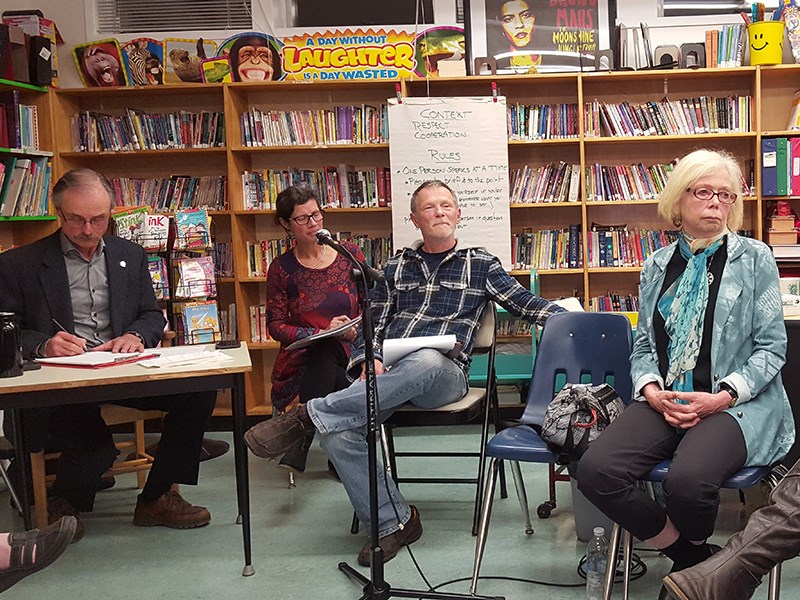A conflict between some residents of Wildwood and inclusion Powell River Society (iPR) remains unresolved following a community meeting held on October 15. City of Powell River mayor Dave Formosa said he will not be calling a special council meeting to deal with the matter as he waits for legal opinion.
The trouble began after residents saw a fence being constructed at a home in their neighbourhood. They thought the fence was going to be 16-feet tall because of the height of the poles. The city’s allowable height for backyard enclosures is six feet.
Inclusion chief operating officer Pat Townsley told residents the fence was never going to be 16 feet tall.
“The fence was to be six feet,” said Townsley at the meeting attended by about 40 residents. “Yes, it looks like I'm building a penitentiary. I get it. I get why people would be concerned.”
The discovery led residents to enquire about the purpose of the fence and found that iPR was building it as part of preparation for a single client with challenging behaviours.
The individual cannot legally be identified under the Freedom of Information Privacy Act and the Peak will not disclose the location of the residence.
“This is the first time that this has happened where the community has come out and asked to speak to us about someone living in their neighbourhood,” said iPR executive director Lilla Tipton.
Inclusion Powell River has been in the community since 1954.
Tipton said the organization serves adults and is entrusted by families to support their children throughout their lives.
Most of the fears expressed by the residents were about the client’s behaviours, as well as personal and property safety.
“I feel our voice needs to be heard and brought out into the open,” said Wildwood resident Laurie Turunen in an email to the Peak. “We all feel we are being steamrolled by this organization regardless of how much this will negatively impact so many of us, possibly for years to come.”
Townsley admitted to a lack of communication with Wildwood residents. She said had residents been informed in a proactive way, they would have had an opportunity to give feedback.
“So for that, I'm very, very sorry,” said Townsley.
Wildwood resident Darren Bennett suggested a more compassionate approach would be to locate the individual in a remote, rural environment.
“Creating a situation such as this without the consent of the community lacks ethics and professionalism,” said Bennett in an email.
Greg Reid, speaking at the meeting on behalf of some of the residents, said there was a question of zoning and whether the home was for residential use or as a group home. If it were the latter, Reid argued that the house was institutional and not allowed under Wildwood’s zoning of suburban residential.
But, according to Townsley, the home is a residence and does not pass the test for a licence under the Community Care and Assisted Living Act.
A licence is required for all programs and facilities providing care to three or more persons.
“We don't have a licence,” she said. “You only need to have a community care licence when there's more than two people living in a home. Otherwise it's just a home.”
According to Townsley, the client is a foster care placement. City of Powell River director of planning services Thomas Knight said that has raised questions over how the designation could affect zoning.



